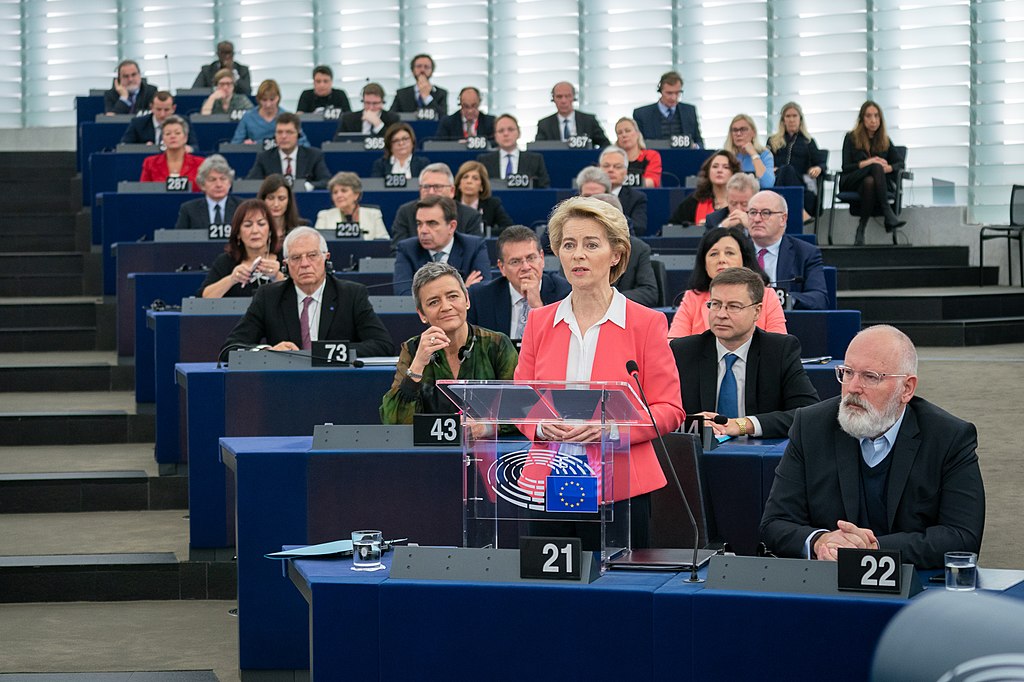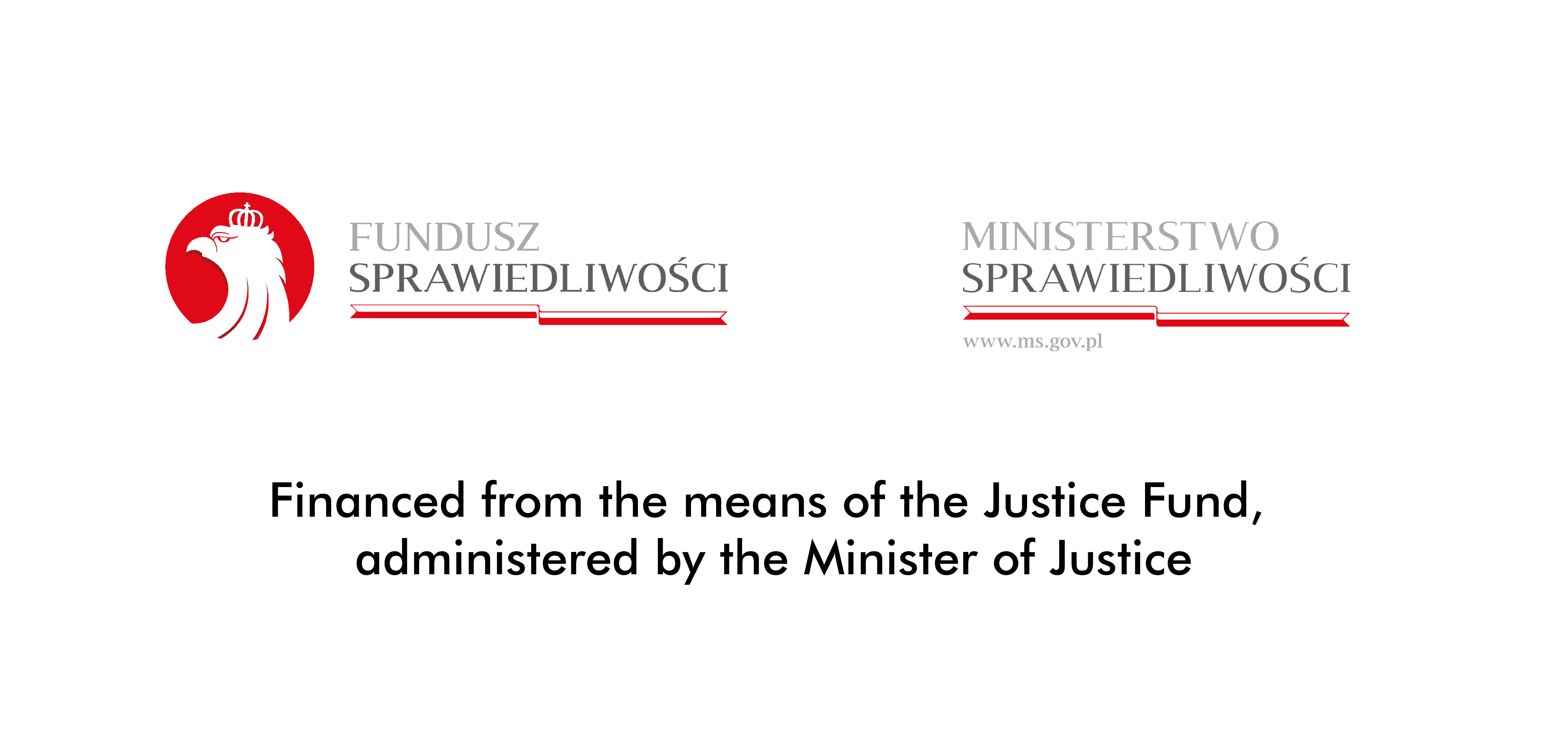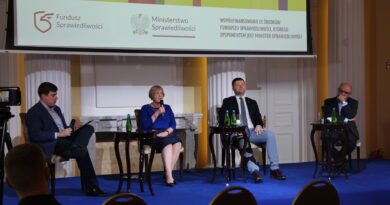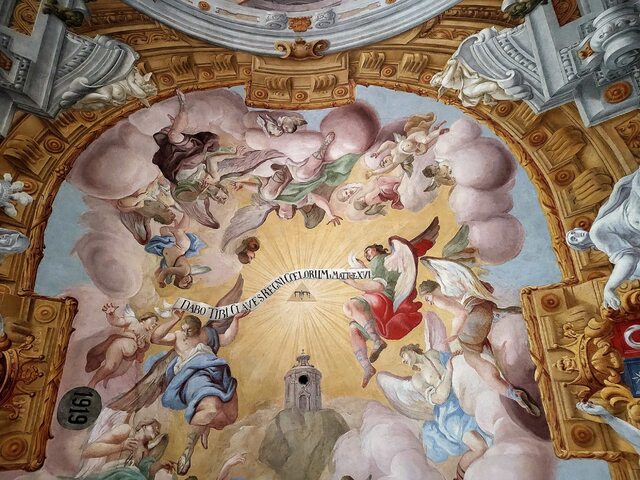Why do we need a sovereign state? In its absence, disaster awaits

An interview with Professor Zdzislaw Krasnodębski, sociologist, Law and Justice member of the European Parliament.
RYSZARD GROMADZKI: Your statement to the Republika TV network, in which you indicated that the West and the European Union are a greater threat to Polish identity than Russia, provoked hysterical reactions from the opposition and the pro-opposition media. One deputy of the Polish People’s Party even called for an investigation against you by the Internal Security Agency… How do you explain this tumult, Professor?
PROF. ZDZISŁAW KRASNODĘBSKI: It would seem that I have not said anything particularly controversial. Of course, one can disagree with that. However, the wave of hatred and hysteria that my statement has provoked is very typical. You said that I pointed out the threat to Polish identity coming from the West. Strictly speaking, I said it was about the threat to Polish sovereignty or independence coming from the West from the European Union. This is not quite the same as identity. And that’s not to say that I disregard the threat from Russia, which is a military threat, a threat of physical destruction. But I pointed out that there are also other kinds of threats to our sovereignty and independence that are more difficult to identify – and in that sense, more dangerous.
With your diagnosis, you violated several strongly held taboos in Poland…
To accuse me of not seeing the threat from Russia is absurd. It is enough to read my articles, statements in the European Parliament, all my activities in the context of the Smolensk catastrophe, etc. This stimulated outrage by politicians and some publicists after my statement is, of course, related to the fact that they are trying to erase the guilt, which is related to the policy practiced by the government of Donald Tusk, a policy in a sense continued by him after 2014, when he was already president of the European Council. Today, they are trying to make themselves seem as very tough, anti-Russian politicians, standing firmly for Polish national security, but after all, we all know that these same people disarmed the Polish army, that they aimed for reconciliation with Russia, building it on the bodies of our elite who died in the Smolensk catastrophe. Add to this the fact that Donald Tusk was a factotum of Angela Merkel, presenting her as the most pro-Polish chancellor. Meanwhile, today we know how even Germans themselves judge her policies.
The mask of the “good lady from Berlin” dropped after the Russian aggression against Ukraine….
Well, yes. Merkel was first and foremost pro-Russian. No less pro-Russian than Gerhard Schröder. Today Germans themselves are saying this and they know it. Even CDU politicians will confirm it. And who co-executed this policy in Poland? Precisely those who are shouting today, insinuating that I or someone from Law and Justice may have underestimated the threat from Russia.
This attempt to gloss over the responsibility for the policy of rapprochement with Russia and to become part of the European mainstream again is not accompanied by concrete actions. We hear nothing from leading opposition politicians, such as criticism of Olaf Scholz’s subservient policy, demands for sanctions that are actually effective. In a word: “The devil has dressed himself in the chasuble and is ringing the bell for mass with his tail”. A classic reversal of concepts and deception of one’s own voters.
I have the impression that the reason for your vilification was to challenge another taboo. I’m thinking of the dogma that the European Union is the source of all good.
I spoke of the threat to our sovereignty coming from the West, with the European Union in mind, not because we are in danger of military conquest or physical annihilation; perhaps we are not even in danger of anything that would undermine our prosperity. Instead, it is about depriving us of the ability of democratically elected authorities to make key decisions in Poland, etc., shaping our way of life, the persistence of Polish identity.
The threat from Russia today is being used instrumentally by some political circles to strengthen centralist tendencies in the European Union. I will point out that in the coalition agreement of the current ruling majority in Germany there is a provision for building a “European state”. The conclusions of the Conference on the Future of Europe, formulated de facto by MEPs from the “Spinnelli group”, also lead to this.
These are no longer fantasies of leftist visionaries, but hard realpolitik.
But of course. Mr. Guy Verhofstadt, one of the founders of the group, came to Poland for the Civic Platform Campus. Verhofstadt bluntly said that it is necessary to build a European federation, that there is no place in Europe for national sovereignty. We argued about this during the “Conference on the Future of Europe”. Only that the difference between him and the Polish opposition is that he behaves in a civilized manner. We are political opponents, we have different ideas about the future of Europe. For me, the intrinsic value is Polish independence and sovereignty, which does not at all preclude cooperation between European states within the Union. Our opponents, on the other hand, want to transform the Union, which is an association of sovereign states, into a single state.

That is, a total subversion of the ideas of the founding fathers of the European Coal and Steel Community.
Naturally. The Union is already seriously, in my opinion excessively, centralized in the wake of the Lisbon Treaty, but it’s not enough for them.
How is it that you can exchange arguments with such a “hawk” of European federalism as Verhofstadt, but find it impossible to do so with the Polish opposition?
Its uproar is not just the result of an intellectual and cultural deficit but is preventive in nature. The opposition is pursuing a completely servile policy toward the centers of power in Berlin, Paris and, of course, Brussels, including the program to build an EU superstate. The largest so-called pro-European groups in the European Parliament, which include representatives of our opposition, support this plan. That’s why they preemptively attack and try to intimidate people who are pro-sovereignty, who want Europe to continue to be based on the member states, for the power of the EU institutions to remain limited, for the Union to be based on law, for the treaties to be respected, and for states to be able to conduct independent policy. The opposition has no objection to Poland becoming one of the “lands” of the Union state.
In a word, the forfeiture of all attributes of sovereignty. Hence the attempts to eliminate those who are warning against such a scenario from the political debate?
Yes. Hence the reduction of all criticism of centralist tendencies in the Union to absurdity. This is a dangerous process, because some of our compatriots do not realize the dangers of these tendencies in the EU. Dangerous, because they are not as clear to the eye as some spectacular invasion.
More like an attempt to dominate us softly…
Yes. With the help of money, good-sounding slogans, the promise of “the West”, using a carrot rather than a stick, which, however, is also used as a threat from time to time. They are using a system of incentives and now also the notion of losing the sense of security, due to what is happening in the world, due to Russian aggression. Poland is a stumbling block both in terms of easing sanctions against Russia, “getting along” with it in the future, and in terms of centralizing the Union. I think it is no coincidence that people like Prof. Roszkowski are under attack. Again, let’s look back at our history. It has always been the case that the priority of our enemies was the destruction of that part of the Polish intelligentsia for whom an independent and sovereign Poland was an important value.
This was the core of our partitioners’ plans. The principle is the same.
Today it is done by subtle means, at least seemingly subtle. There is no physical violence, but a symbolic version of violence applied. If such an eminent historian, such a distinguished man as Wojciech Roszkowski, a Knight of the Order of the White Eagle, is treated in such a way, a horde is unleashed on him, then we are dealing with verbal symbolic execution.
History teaches that symbolic violence in favorable circumstances can easily turn into real violence.
Naturally. The boundaries are very fluid. There are cases, fortunately very rare in our country, when such circumstances result in physical violence. This is a foreshadowing of what could happen, what the atmosphere in Poland would be like, what the fate of people who think differently from the total opposition would be like if these people come to power. I would add that if the plan of the “Spinelli group”, strongly supported by Manfred Weber, the head of the European People’s Party, who contributed greatly to the election of Donald Tusk as president of the European Council, were to come true, there would obviously be no sovereign Poland. Poland will then be what Mr. Verhofstadt’s homeland is today, namely Flanders. In the best – most optimistic – scenario, Poland will become like Flanders, some kind of region, perhaps even quite prosperous, with regional authorities and a sense of cultural distinctiveness; in the most realistic – a periphery, a labor reservoir, with external jusrisdiction, culturally occupied.
Without the right to vote, without an independent domestic and foreign policy
Yes. Which is not to say that a subservient part of the Polish elite will not be co-opted into the elite governing this new formation, which will be a united Europe. The United States of Europe, or whatever we might call it.
The vision of a United States of Europe does not have a bad connotation for many Poles. People do not perceive the dangers that we are talking about. Their gaze is fixed on the prosperity prevailing in the West and the profits – the real ones and the mythical ones that are associated with Poland’s presence in the Union. It seems that the part of society that adopts a more penetrating perspective on reality and sees the black clouds looming over Poland from the West is in a significant minority.
Probably so. Meanwhile, our adversaries, with whom I speak in the European Parliament, make no secret of their plans. They say outright that this is precisely the kind of Europe without sovereign states they want, and they are already building it. Let’s ask ourselves: who is influencing our life in Poland, the issue of the organization of courts, decisions on energy or climate policy, etc., and to what extent? If 80% of strategic decisions are made in Brussels, I think it’s obvious that this transfer of sovereignty has already taken place to a large extent, and should the federalists’ plans materialize, it will take place in full. It’s the same as it was in the 1990s, when we made the economic transition [from communism], when the ideology reigned that we didn’t need our own economic entities. Why do we need Polish banks when we would be better served by a foreign bank? Why do we need a Polish company when a foreign corporation is better at generating profit? That was the mentality. Today, this mentality is no longer focused on the economy alone, but on the very essence of our statehood. Again, we can hear: “Why do we need a Polish state when such wise decisions are made in in Brussels?”, or: “Why do we need a separate government when, under the principle of subsidiarity, power could be exercised by some regional board?”. I’m afraid that some Poles don’t understand the seriousness of the dangers behind giving up sovereignty – even though it will ultimately turn against us, against prosperity, against national existence. It’s just that we always wake up a little too late.

You said that the transfer of our sovereignty has largely taken place. However, hasn’t it been happening all along, and under the Law and Justice government, against all the bullish rhetoric that the ruling camp uses against the Union? The course and finality of negotiations on the release of funds for Poland under the National Recovery Plan is a classic example of such a creeping transfer of sovereignty.
I have been following European affairs for a long time, when I was still teaching European Studies as an academic. Ever-closer integration is a progressive process accelerated by successive crises. It stems from economic mechanisms, but also from the willingness of states to cede more and more of their sovereignty to EU institutions. The adoption of the Recovery Mechanism, which will finance the National Recovery Plan (NRP), gives the European Commission new opportunities which it did not have before. This instrument is temporary for now. However, it remains to be seen whether it will be turned into a permanent one like the so-called “European semester”. Returning to your question, it’s not just that the government is bullishly saying something and not fulfilling it, that our assertiveness in relations with the EU is merely staged. Meanwhile, we are the country that is the bravest in the Union, that puts up the most resistance. Others sometimes second us a little, sometimes express support, but very often they hide behind our backs, they do not have the courage to support us openly. This fight is very uneven. In addition, for a large part of Polish society, all that matters is the money that will flow for us from the EU, not the political costs associated with it. A significant part of our society underestimates these costs. That is why I said that this is a more difficult threat to counter, because in a sense it is more abstract. The struggle for independence is written in our national DNA, along with the defense against the military threat from the East or in relations with Germany, which we still perceive in World War II terms. However, the nature of relations with our western, powerful neighbor has changed…
An invasion by the Bundeswehr is unlikely to threaten us…
But an ideological invasion, a political, social, economic invasion – by all means. The real threat is the growing influence on public opinion, on our political sphere and so-called civil society. Just as it was during Tusk’s Poland, when Poland became a satellite of Berlin. This is how “soft power” works, which does not mean at all that it is not force, it is not violence. It is all the more dangerous as it concerns the cultural and spiritual sphere.
In order to successfully resist this threat, to save at least the core of our sovereignty, a prerequisite is the victory in the upcoming elections of, let’s call it conventionally, the “patriotic camp”? It sounds like a slogan, but I don’t think there is any other alternative…
This is about fundamental issues. Within the right or within the patriotic forces, we can argue about tactics, about individual decisions. This is, I believe, necessary and crucial. But there is also a fundamental distinction, and it was my intention to articulate it – to put it straight: Poland as a state and Poland as a province, a “land” of the European state. I think we should ask the opposition specific questions: Do you want federalization of the Union? Do you want a European state to be created? Are you in favor of moving away from unanimity in the EU – where it still applies. If someone asked me such a question, I would answer: no, because in a European state Poland will not be a sovereign country. We can talk about other issues. But this is a central issue that concerns the question of the existence of our state. One can expect that on September 14th, in her State of the Union address, European Commission President Ursula von der Leyen will outline her vision of a united Europe. Then it will be necessary to ask our opposition whether it agrees with this vision, whether it will implement it. Whether it agrees with the next step toward further limiting our sovereignty or even making it purely fictitious. If the unanimity rule – still in effect in the four key areas of EU policy – is abolished, we will never again be able to stop any decision by France and Germany, supposedly made in the interest of all Europeans. It is important that Poles have a clear choice between the two visions of what is to happen to Poland in the next decades.
This interview was published in September 2022 in “Do Rzeczy” magazine.




